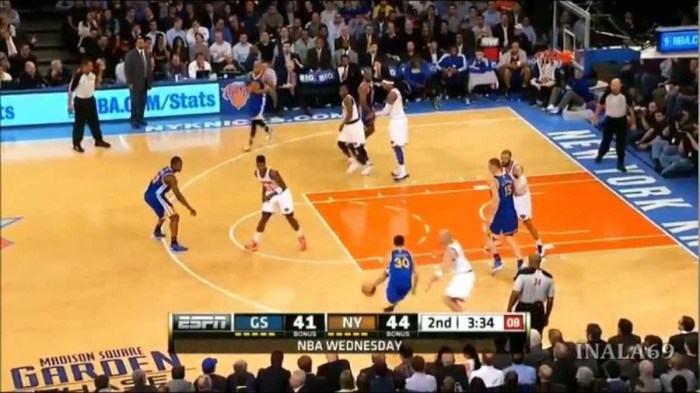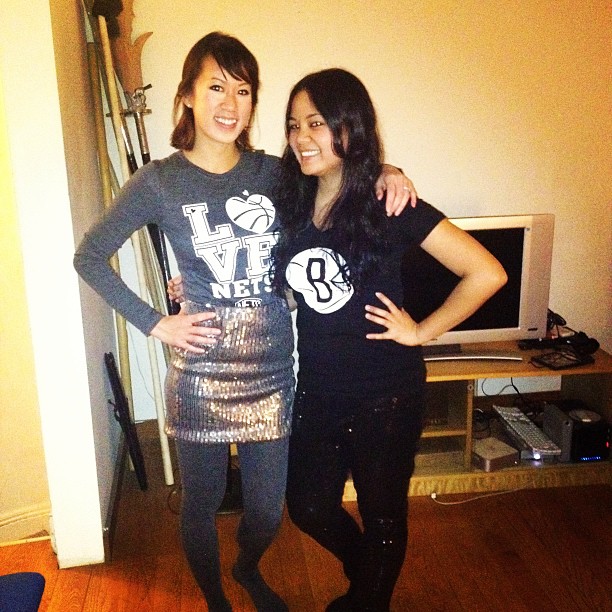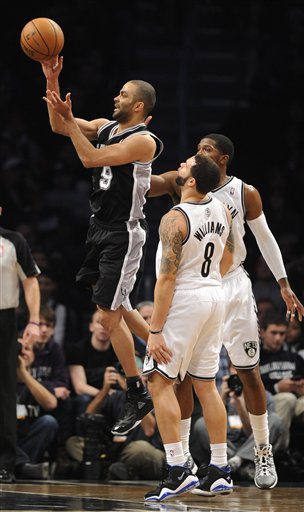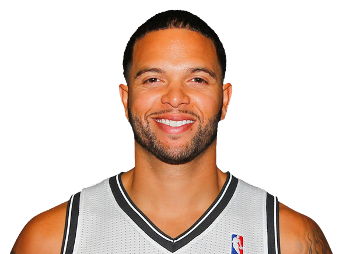In short, he’s an ideal role-player who thrives off the ball, spotting up or using his superior athleticism to slash to the basket. Now having the benefit of playing next to Chris Paul, I expect Ariza to return to form from his playoff run with the Lakers – he really took off after the acquisition of Kevin Martin; Ariza is at his best playing next to dominant players.
If you’re hoping Trevor will grow into his physical gifts and emerge as a primary option, you’re going to be disappointed. While a capable ball-handler against light pressure, he doesn’t have the handles to create for himself off the dribble. He also has extremely poor footwork and body control. Even worse, Ariza has an oddly inflated sense of entitlement–possibly due to his Lakers pedigree–leading him to force bad shots and make poor decisions; Ariza struggles when needing to think on the basketball court.
The issue of Ariza’s defense is a contentious one. His reputation precedes him, but his is a reckless, instinctual approach, garnering him gaudy steals totals but often leaving his teammates scrambling to rotate after blown coverage. Still, this manner can be conducive to forcing tempo if that’s your cup of tea.
All in all, assuming expectations remain reasonable, I think the Hornets will be very pleased next year with Trevor Ariza. While his struggles with the Rockets are well documented, playing next to Chris Paul is a situation tailor-made for a player of Trevor’s skillset and abilities – in returning to his former role with the Lakers (next to a superstar guard), I think Trevor will really thrive.
Collison started off his rookie season pretty rough, shooting poorly from deep, and struggling valiantly to figure out how to score over the faster, taller atheletes he met in the paint. In fact, for the first month, a pick and roll run by Collison typically had very little going for it. That all changed, however, when Chris Paul went down. Given long minutes, constant coaching by Paul, and confidence that never seemed to waver, Collison started deploying a stutter step and mid-range pull up jumper that made him deadly on the pick and roll by the end of February. His long-range shot, which was amazing in college, began to settle in, and soon he was deadly from three, both as a spot-up shooter, and as a guy who could pull up off the dribble and knock it down.
As a passer, Collison is excellent in the open court, solid at the pick and roll, but tends to struggle in the pick and pop. He’s great at driving into the paint and laying the ball off to a big man for a dunk or finding the roller, but when he has to find the open men on the perimeter, he still struggles. As a result, though he gets a lot of assists, he also gets a lot of turnovers. He also has the tendency to be called for a carry once or twice a game, though that was fading by the end of last season.
Defensively is where Collison has his biggest problems. He makes Allen Iverson look fat – and unlike mighty mouse Chris Paul, he’s also not physically strong at all. That leaves him to be exploited terribly in post ups last year, and because of his lightness, a good screen or series of screens can take him out the picture on defense despite his recovery speed.
As a team leader, Collison was remarkable. He was barking commands to veterans like Okafor and David West from the start of the season. On more than one occassion I saw him get on teammates for not being where they were supposed to be. He’s intelligent, knows how to get a team into its offense, and it shows. He’s also cold-blooded. He had two game-winning shots last season, and another three that put a nail in a run the other team was making to come back. He doesn’t shy from that big shot – and he has a decent track record of making it.
In the end, I feel Collison will be an exciting-as-hell, explosive scorer in the mold of Tony Parker, and most nights will outscore his opponent. At the same time, I’d also expect his opponent to regularly score more than is usual.
Tim Donahue (8 points, 9 seconds) on Troy Murphy:
Offensively – The short answer is that Murph is a 6?11? Steve Kerr. He is an extremely efficient scorer, and serves as a safety valve for the offense. I can see him being a very nice player with your personnel, offensively, as he is a low-usage guy. The Pacers use him to float at the top of the key, and he took all but like 10 of his three’s from the arc (very few corner threes). He has no post game to speak of, and he’s a solid passer, but not a great high post guy. He does a good job of reading his defender, and is very good at reading the closeout, putting the ball on the floor and finishing at the rim. He doesn’t get many offensive rebounds because of (a) where he plays and (b) his lack of footspeed, but could get more if he played closer to the basket. However, I think you’d be an absolute fool to play him – offensively – in any other way than the way O’Brien used him. Look at his eFG and TS numbers the last three years under Obie vs. his time in GS. He plays completely within his skill set (almost to a fault), and I have never – never – seen a guy with better shot selection than Troy. Very, very nice complementary shooter to have on your team.
Defensively – He is definitely a liability, and that is because he’s slow and physically weak. He gets lots of defensive rebounds, but he doesn’t really control the glass the way most guys who pull down the volume of boards he gets. He is not a block out guy, but has a good nose for the ball. One-on-one he will never be better than, well, bad, but he can learn and will follow team defensive concepts. In other words, if the opponent decides to target him, then he’ll get beaten, but he won’t blow defensive team schemes. Overall, your team’s defensive performance will drag when he’s on the floor.
Lockerroom & Fit – He appears likable enough, but not really a presence. Seems to get along with everybody well enough. There were rumors last year that he wasn’t happy about Hansbrough eating into his playing time, but they were way external to the organization and I never believed them. As far as fitting with your big guys, he should be a great fit with both Lopez and Favors offensively, and probaly a poor fit defensively with Lopez, but pretty good with Favors – assuming I’ve got a reasonable handle on their respective games.
Here’s the most important part – you can’t look at the 14 & 11 and think he’s that traditional double-double guy. He is very much someone who accentuates his positives, but doesn’t improve on his negatives. He is not a physical player, at all. He is who he is, but that can be a good thing. Assuming Avery doesn’t choke on his defense, I suspect he’ll love the guy because he is perhaps the most reliably consistent player I’ve seen in three+ decades of watching the NBA. He will hit shots, he will get some boards, and he will suck on defense. He will score, but he is a safety valve – not a primary or secondary option. It sounds strange, but I think coaches like that because it’s something they don’t have to worry about. They put him out there, and work on everything else. This is why he can have some big games and not really make a difference. He’s kind of a like an offensive lineman. He can have a great individual game, but if the rest of the line sucks, it won’t matter. At the same time, if he’s great and the rest of the line is great, nobody will notice him.


















